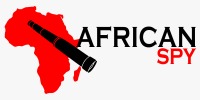In 2013, an estimated 95 percent of Zimbabweans approved a new constitution that, officials said, would end years of human rights abuses under President Robert Mugabe’s government.
Marking two years since its ratification, however, Zimbabwe Lawyers for Human Rights (ZLHR) released a statement on Friday calling for “a deep and sincere reflection” on whether the charter was being used to bring greater accountability and to safeguard people's rights and freedoms.
Indeed, many critics say the new constitution, which many perceived as more liberal than its predecessor, hasn't changed realities on the ground.
ZLHR spokesman Kumbirai Mafunda, for exmple, calls the new constitution a "paper tiger that is becoming increasingly meaningless and ineffectual.”
“We remain concerned by the everyday contraventions or violations of governance charter. We are worried that despite the constitution having some protective mechanism measures, the authorities in Zimbabwe continue to act with impunity," he said. "Examples abound of how the authorities have disregarded the constitution: with freedom of expression; with law enforcement agencies continuing to clampdown on protesters. We are worried that the rights as enshrined in the constitution — the right to health, the right to education — is not being respected."
“We remain concerned by the everyday contraventions or violations of governance charter. We are worried that despite the constitution having some protective mechanism measures, the authorities in Zimbabwe continue to act with impunity," he said. "Examples abound of how the authorities have disregarded the constitution: with freedom of expression; with law enforcement agencies continuing to clampdown on protesters. We are worried that the rights as enshrined in the constitution — the right to health, the right to education — is not being respected."
President Mugabe’s government has said it is bankrupt and cannot afford a campaign to ensure all clinics, hospitals, schools and colleges are fully functional. As a result, the right to health care and the right to education have remained a dream.
Earlier this week, Amnesty International said it is worried that access to information and freedom of expression are also in danger.
Since 2001, when the monopoly of the state broadcaster Zimbabwe Broadcasting Holdings legally ended, only two companies — one owned by a government minister and another owned by a state-owned media company — have received licenses to operate radio stations. There are no privately-owned TV or radio stations in the country.
Earlier this week, Jonathan Moyo, information minister told parliament that Harare was attending to the issue of privately owned television stations:
"The Broadcasting Authority of Zimbabwe is proposing that we attend to these matters as soon as possible. The issue, after appropriate consultations, should be gazetted in the near future, meaning very very soon," said Moyo.
Earlier this week, Jonathan Moyo, information minister told parliament that Harare was attending to the issue of privately owned television stations:
"The Broadcasting Authority of Zimbabwe is proposing that we attend to these matters as soon as possible. The issue, after appropriate consultations, should be gazetted in the near future, meaning very very soon," said Moyo.
Another issue is that commissions to discuss peace and reconciliation, new land reforms, and economic disparities between men and women have yet to be formed, two years after they should have been established.





0 Comments